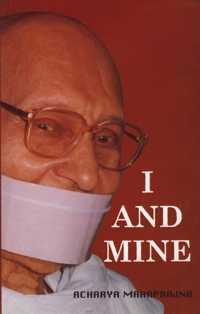
Exponents of the first school are topmost eternalists. They believe that the essential or basic element is totally eternal with no room whatsoever for variation.
Exponents of the second school are those who believe that things die, j.e., change every moment. Whatever is undergoes change every moment, they say.
Exponents of the third school are those who believe in the doctrine of manifold aspects. They accept every element as both eternal and ephemeral (non-eternal).
Clarity in the use of language is dependent upon space, time and the individual user. Right interpretation is not possible without this context. Even the expression, ‘ I shall go,' does not carry full meaning unless it is made clear when and where I shall go.
Take this sentence 'So and so is not here.' The above sentence does confirm the person's existence but he/she is not where we want to see him/her. This is spatial transience. The sentence, ‘At present it is not,' denotes temporal transience. That which is not subject to space and time is eternal/perennial.
The perennial is present at all times and in all places. All elements are eternal. As much as was there in the world shall remain undiminished. Not even an atom is added or reduced. The basic element is eternal and its extension belongs to a particular period.
Most religious people regard their regulations eternal. Unthinkingly everything can be called eternal, but can any material extension be ever eternal? We say, 'Religion is perennial.' After all what is religion as such? Man presents every fact through language. When language itself in non-eternal how can regulations and definitions couched in language be eternal?
Eternal is that which is natural. Religion - the natural purity of the soul - is eternal. But how can regulations and definitions framed to interpret religion be eternal? Has any definition of religion given so far been eternal? That which is made is not eternal. Definitions are man-made, so they cannot be eternal. It is said that non-violence, truth, etc. are eternal. But the question is 'What after all is non-violence?' Eternality ends where there is form or shape. Non-violence as the soul' s naturalness can be eternal.
Memory traces (samskara) always take one back into the past. Communists, even though not believing in the scriptures, appeal in their name. The great thinker Mao says that Russia has become revisionist because it has strayed from Lenin' s doctrines. On the one hand they reject scriptures and on the other they keep sticking to them. China changed the feudal tradition, but the doctrine applied for bringing about the change came to be regarded as eternal.
Shankaracharya has placed the passion for the scriptures in the same category as that of passion for sexual indulgence. Man is very adept in the use of words. He has a great attachment to the past, to what he has been accustomed to, and to what is ancient. He is not attached to the topical so much as he is to the distant past. He lives in the present but is more inclined towards the past. Therefore, he finds it difficult to understand truths newly revealed. That which has outlived its utility can claim our respect, but not magisterial authority.
It is not wise to cling to a thing that has but lived its utility. Only those people develop who think of changes. Those people are always losers who mistakes the transient for the eternal and do not change it.
 Acharya Mahaprajna
Acharya Mahaprajna

